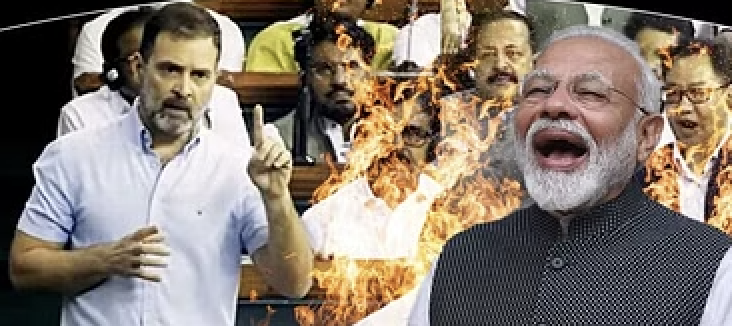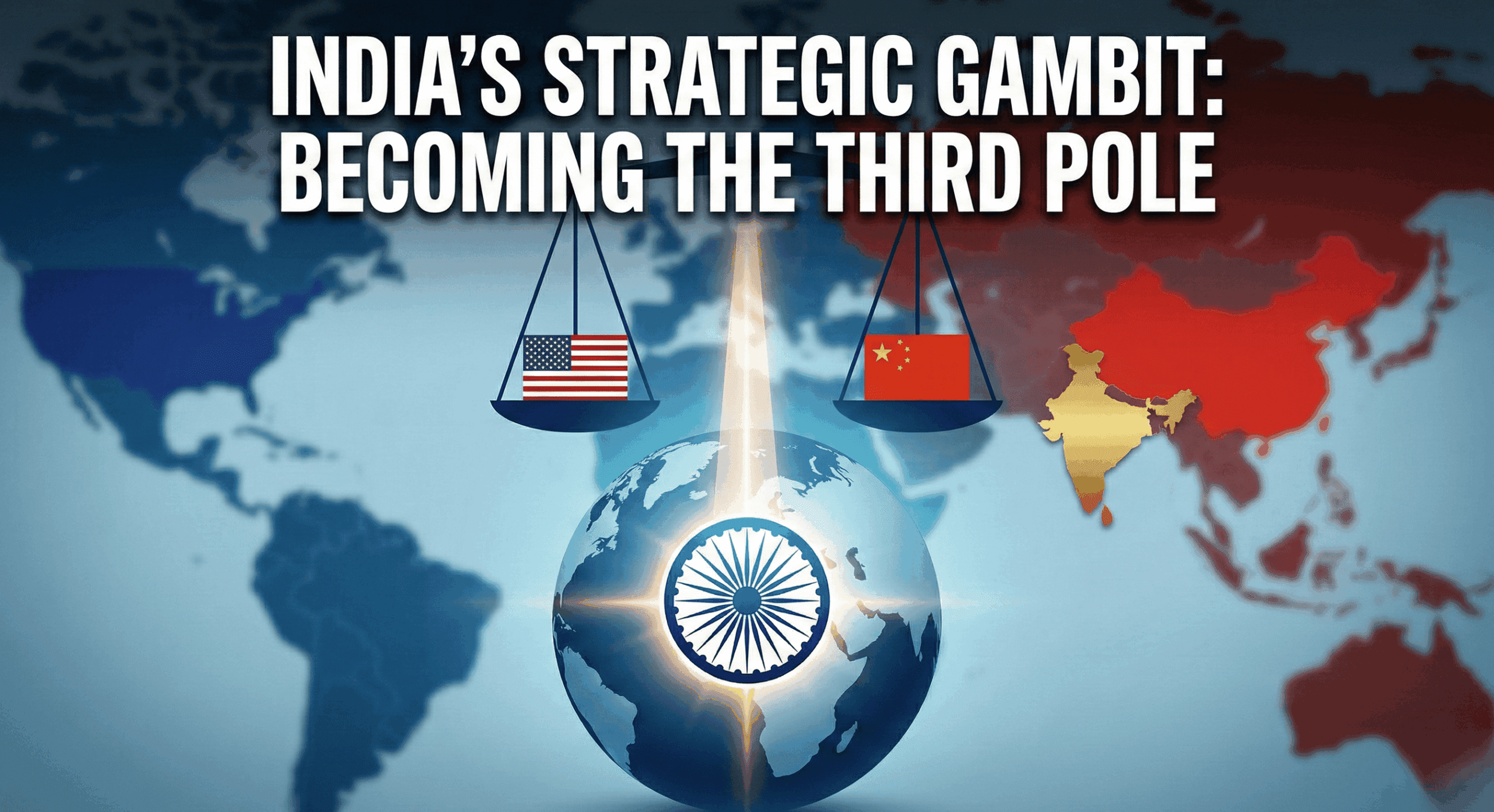Rahul Gandhi Draws Parallel Between PM Modi’s Arrogance and Ravana’s, Says It’s Affecting India Negatively


Congress leader Rahul Gandhi, speaking during a debate on a no-confidence motion in the Lok Sabha on Wednesday, criticized Prime Minister Narendra Modi, drawing a comparison between his arrogance and the arrogance of Ravana, the mythical figure from the Ramayana. Gandhi stated that Modi’s arrogance was akin to the arrogance that led to the destruction of Lanka by Ravana’s actions.
Gandhi asserted, “In order to truly hear the voices of the people, we must rid ourselves of arrogance, just as Ravana’s arrogance led to his downfall. Similarly, the arrogance of Prime Minister Narendra Modi is causing significant harm to our entire nation.”
He emphasized that Lanka was not set ablaze by Lord Hanuman, but it was Ravana’s own arrogance that caused its destruction. Gandhi delivered these remarks in support of the no-confidence motion being discussed in the Lok Sabha.
Before commencing his speech in the Lok Sabha, Rahul Gandhi expressed gratitude to Speaker Om Birla for reinstating him as a Member of Parliament. He said, “First and foremost, I would like to express my gratitude to you for restoring my position in the Lok Sabha. I apologize for any inconvenience my previous speech may have caused you. However, I spoke the truth. Today, my colleagues in the BJP need not feel apprehensive, as my current speech is not focused on that matter.”
Following this statement, members from the Treasury Bench raised objections to his comments.
Quoting the renowned poet Rumi, Rahul Gandhi shared, “Rumi had said, ‘Words that come from the heart are words that enter the heart.'”
He continued, “Hence, I shall not be speaking from my mind but from my heart. Last year, for over 130 days, I embarked on a journey across various corners of India, not alone, but alongside many people.” Treasury members once again raised their concerns about his statements.
Gandhi reflected, “Initially, when I embarked on the Bharat Jodo Yatra (Unite India Journey), I believed that walking 25 kilometers a day was a manageable feat, considering I could run 8 to 10 kilometers daily. Looking back now, I realize that it was an act of arrogance. Arrogance resided within me at that time. However, India has the ability to humble arrogance in an instant. Within just 2-3 days, my knees began to ache due to a preexisting injury. The mighty seemed insignificant in those initial days. The arrogance I brought with me to witness India vanished.”
He went on, “With time, I started comprehending the essence of that which I hold dear – the cause I am willing to die for, the cause I am prepared to face imprisonment for in the name of Modiji, and the cause for which I endured a decade of criticism. I aspired to fathom the profound nature of this cause that had captured my heart.”
Narrating his experience during the Yatra, which extended from Tamil Nadu’s Kanyakumari to Jammu and Kashmir’s Srinagar, the Congress MP recounted, “Each day, I walked with trepidation. Whenever my fears intensified, an inexplicable force came to my aid. On a particularly difficult day, a young girl handed me a letter that conveyed, ‘Do not worry, I am walking alongside you.’ Witnessing my injury, she shared her strength with me. Countless individuals bestowed their strength upon me.”
Gandhi then revealed that initially, he spoke his mind to the people he encountered, but gradually, he transitioned to actively listening to them, empathizing with their pain.
“As I began to heed the voices of the people and understand their suffering, the journey underwent a profound transformation. I ceased to merely hear the cacophony of the masses; instead, I began to internalize the pain, wounds, and words of those who engaged with me. Their narratives became intertwined with my own,” he shared. Gandhi further highlighted the diversity and complexity of India, with its various languages and religions.
“Our nation is a symphony of voices, embodying truths, pains, and adversities. To genuinely listen to this symphony, we must cast aside our arrogance, ambitions, and aspirations. Only when we relinquish our preconceived notions can we attune ourselves to the authentic voice of India,” he asserted.
Explaining his decision to raise the issue within the context of a no-confidence motion, Gandhi elaborated, “Our endeavor to truly comprehend India’s voice necessitates the eradication of hatred. I aim this statement at the Prime Minister. The heart and soul of India’s voice have been stifled. This suppression is evident in Manipur, where the assassination of the voice of Bharat Mata (Mother India) has occurred. By silencing the people of Manipur, you have silenced Manipur itself. Your actions are in opposition to the principles of the nation; therefore, you stand as anti-national, having slain the essence of Bharat Mata.”
Gandhi also stated, “This is precisely why your Prime Minister cannot venture into Manipur – his actions have brought about the death of India within Manipur’s borders and within the hearts of its people.”
He added, “The murder of Bharat Mata in Manipur is symbolic of the larger problem – your ongoing violence is a direct assault on India itself. While the armed forces possess the capability to restore normalcy within a day, you refrain from utilizing this potential, instead opting to perpetuate India’s demise in Manipur. If Modi fails to comprehend the pulse of India’s populace…”
Gandhi concluded by drawing a parallel between the destruction of Lanka by Ravana’s arrogance and the metaphorical “kerosene” being poured onto India by Modi’s actions. He stated, “The conflagration that engulfed Lanka was ignited not by Lord Hanuman, but by Ravana’s pride. Similarly, the Prime Minister’s policies are like pouring kerosene across the expanse of India. First in Manipur, and now in Haryana, you seek to set the entirety of India ablaze – a calculated attempt to destroy the nation.”


